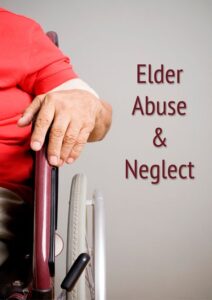Jun 16
Education and Training Help Stop Elder Abuse

In every community, there may be older adults who are being harmed by some type of abuse. The most common types of abuse of older adults include physical abuse, sexual abuse, financial exploitation, neglect by others, mental abuse, abandonment, isolation, and self-neglect. Older adults who are being abused, as well as people who are worried about a family member, friend, or neighbor, need a safe, confidential place to call for help, and in Massachusetts, they have the Statewide Elder Abuse hotline at (800) 922-2275. Springwell’s Protective Services Program, an important partner in the statewide system, is designed to help eliminate or alleviate the abuse or neglect of an older adult by responding to reports of abuse in seventeen greater Boston and MetroWest communities. Each year on June 15th, World Elder Abuse Awareness Day serves as a reminder that older adults may need assistance to escape abuse.
This year, Springwell was invited with Belmont Police Lt. Kristin Daley to help lead a comprehensive Elder Abuse Investigations training program organized by the Municipal Police Training Committee for officers across Massachusetts. Elisa Espinal, MSCJ, LSW, Springwell’s Protective Services Program Manager led a session on Mandated Reporter Training. This specialized training helps officers develop a deeper understanding of the unique challenges faced by older adults and the importance of well-thought-out prompt responses. The partnership between law enforcement and organizations such as Springwell helps provide sound solutions.
Espinal explained the types of abuse that Protective Services workers (PS) investigate and where those overlap with Law Enforcement. PS is responsible for investigating physical abuse, emotional abuse, sexual abuse, neglect, financial exploitation, and self-neglect. Law Enforcement participates in situations that involve physical abuse, sexual abuse, financial exploitation, and neglect in some circumstances.
When a report is received, the Protective Services team initiates an investigation process with a specific timeline and follow-up plan. By law, the identity of the reporter is kept confidential.
Protective Services functions with the philosophy of balancing the older adult’s right to self-determination and the mandate to protect. There is an exception to self-determination when the individual poses a threat to themselves or others. After reviewing the reporting process, steps of an investigation and the types of referrals that lead to valuable solutions for the older adult, Espinal spent time talking about the philosophy of the Protective Services program that makes it most effective. She emphasized that “Springwell’s Protective Services Program is committed to responding to reports of elders at risk with the goal of alleviating the risk to the elder and supporting their safety, health, and independence. Every older adult’s right to self-determination plays a vital role in the process and is often the key to achieving the best outcome possible. When we bring understanding to situations that may not be healthy ones, working to respect the elder’s decisions and meet them where they are often gets us to the goal of safety. Sometimes it is best to help elders in these situations make small changes little by little, with ongoing support, instead of trying to fix everything all at once, which can lead people to shut down with no room for improvement.”
For more information, visit our website page, Protecting Elders at Risk of Abuse.


